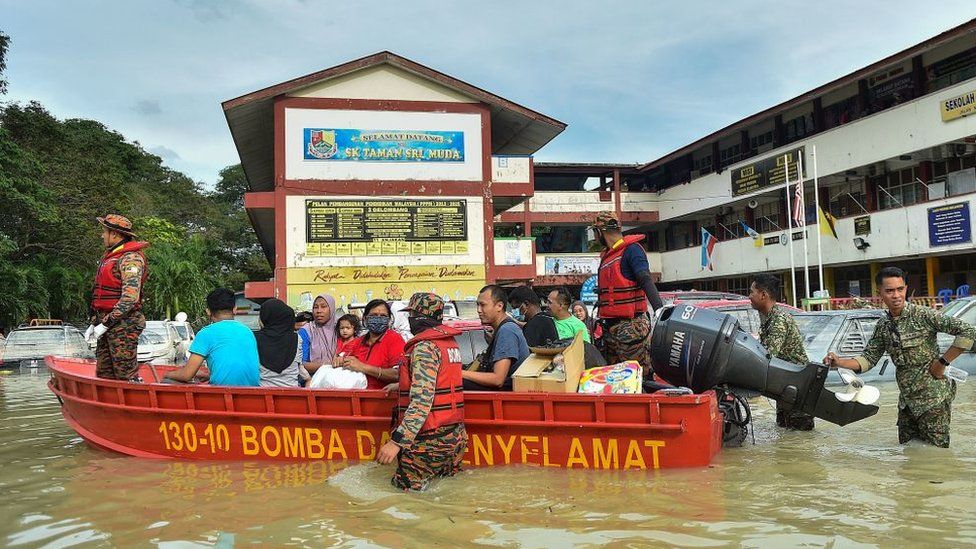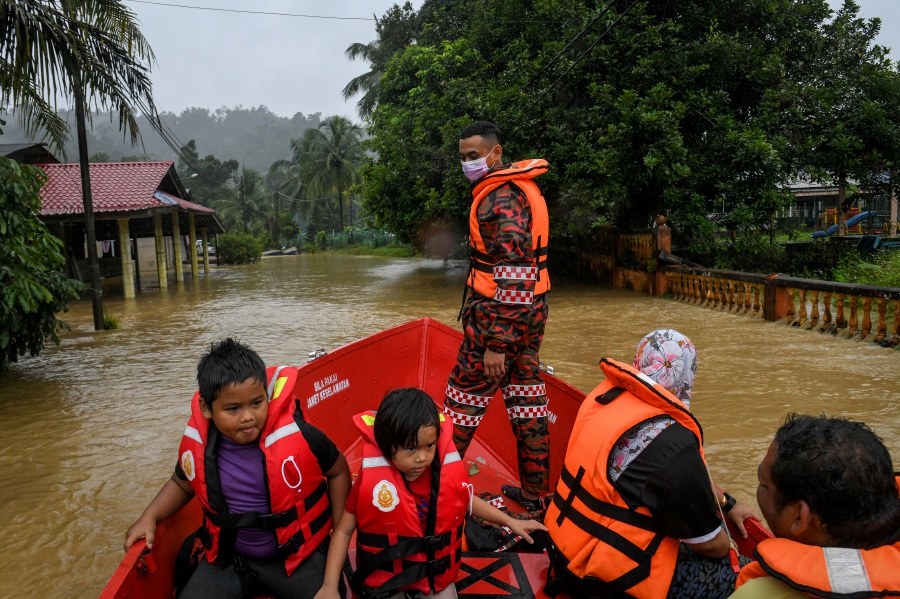Malaysian Firefighter Shares Plight On Social Media Following Criticism From Netizens
"We are doing our best to help evacuate the flood victims with our current manpower. Even if there is no boat, we are willing to come and carry the victims to a safe place."
Recently, the Fire and Rescue Department of Malaysia (JBPM) received criticism from netizens for being slow to act in rescuing flood victims.
JBPM Hulu Langat Zone 4 operations officer, Mohamad Akmal Mohamad Khairi took to Facebook to share his disappointment.
"We are doing our best to help evacuate the flood victims with our current manpower. Even if there is no boat, we are willing to come and carry the victims to a safe place," Akmal said.
"As much as we want to, we cannot satisfy everyone."
According to him, natural disasters can sometimes turn out to be way more severe than expected, resulting in additional hurdles that make it difficult for firefighters to rescue victims.
Explaining how firefighters usually respond to a flood emergency call, Mohamad Akmal said that each station usually has seven to 12 firefighters stationed during a shift. When there is a call, all of them will rush to the first site.
"In the event of a disaster, we would continuously get emergency calls. And this does not include direct calls to our firefighters and officers' mobile phones," said Akmal in his post.
"The question is, how do you expect us to be at 10 different places all at once? Plus, we don't have time to record videos or take pictures while working because we really do not have the time to do that," he said.
According to him, the firefighters and officers also have to work in accordance with the standard operating procedures (SOPs) and key performance index (KPI) set
He said that JBPM follows the same practice as other rescue departments, which is to prioritise their safety first when performing rescue tasks. This is to ensure that they avoid getting themselves or their teammates injured in the line of their duty.
"During the flood, we had very limited time and opportunities to act. We didn't have enough firefighters or tools required," Akmal lamented.
"One rescue team had to respond to hundreds of calls. At that time, we could only prioritise cases that we could respond to (after gaining feedback) based on the level of danger and risks faced."
"There are times when we are willing to risk everything to save lives. When disaster strikes, instead of ending our shifts on time, we are willing to work overtime without getting any payment solely for the sake of saving lives and belongings."
"I work at the fire station according to office hours. But, whenever I receive an emergency call, I have to be at the site, regardless of the time and place. Whether it's midnight, early morning, day off, or break time, I still have to be present for duty," he said.
He added that when a disaster occurs, the duties as a senior officer are slightly different — they have no shifts.
According to Akmal, officers should be on duty to plan, coordinate, and supervise operations until the situation is resolved.
"Sometimes, we can be on duty for up to 48 hours. We can forget about taking breaks, spending time with our children and wives, or how tired we are, because we know that our job is not over," he shared.
"But, when we showed up to help the victims, there was no appreciation or even a thank you. The worst thing was that the victims were throwing insults — calling us slackers, slow, lazy, and so on."
"Please try to understand us too. We are also emotional human beings. We also have families. Think twice before you speak," he said.
He also added that the incident in 2018, where six firefighters drowned, while doing rescue work, still affects him.
"Six of our comrades left us in just a glimpse. Only God truly understood how we felt at that time."
Written by: Redzuan Muharam
This article originally appeared on Harian Metro, with rights to be republished on SAYS.


